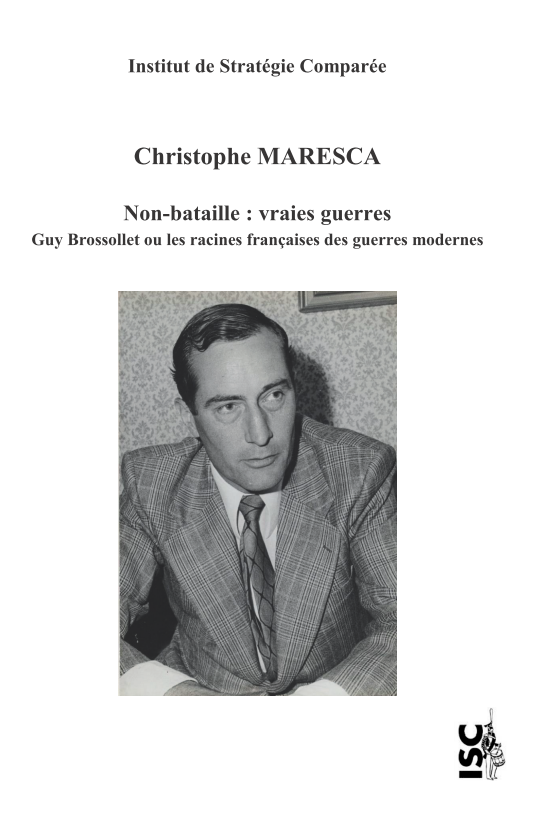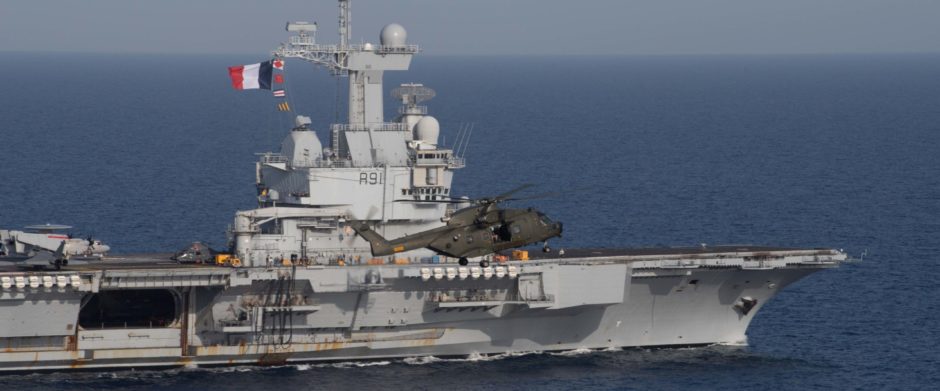- Aaronson Mike, Aslam Wali, Dyson Tom et Rauxloh Regina (eds.), Precision Strike Warfare and International Intervention. Strategic, Ethico-Legal and Decisionnal Implications, Routledge, Londres, 2014.
- Alonso Baquer Miguel (général), A qué denominamos la guerra ?, Madrid, Ministerio de Defensa, 2001.
- Andréani Gilles et Hassner Pierre (dir.), Justifier la guerre ? De l’humanitaire au contre-terrorisme, 2e ed., Les Presses de sciences po’, Paris, 2013.
- Andreas Peter, Killer High. A History of War in Six Drugs, Oxford, Oxford University Press, 2020.
- Auerswald David, Disarmed Democracies : Institutions and the Use of Force, University of Michigan Press, Ann Arbor, 2000.
- Avant Deborah, Political Institutions and Military Change: Lessons from
- Peripheral Wars, Cornell University Press, Ithaca, 1994.
- Auerswald David, Disarmed Democracies : Institutions and the Use of Force, University of Michigan Press, Ann Arbor, 2000.
- Aydinli Ersel, Violent Non-State Actors. From Anarchists to Jihadists, Routledge, London, 2016, réed. 2018.
- Baechler Jean et Holeindre Jean-Vincent (dir.), Guerre et politique, Hermann, Paris, 2014.
- Baechler Jean (Dir.), Guerre et religion, Hermann, Paris, 2016.
- Baechler Jean et Frédéric Ramel (Dir.), L’arrière, Hermann, Paris, 2017.
- Baechler Jean et Pierre Delvolvé (Dir.), Guerre et droit, Hermann, Paris, 2017.
- Baechler Jean (Dir.), La guerre civile, Hermann, Paris, 2018.
- Baechler Jean et Bernard Boëne (Dir.), Les armées, Hermann, Paris, 2018.
- Baechler Jean et Olivier Chaline (Dir.), La bataille, Hermann, Paris, 2018.
- Baechler Jean et Michèle Battesti (Dir.), Guerre et santé, Hermann, Paris, 2018.
- Baechler Jean (Dir.), La guerre et les arts, Hermann, Paris, 2018.
- Baechler Jean (Dir.), Guerre et histoire, Hermann, Paris, 2019.
- Baechler Jean (Dir.), Figures de la guerre, Hermann, Paris, 2019.
- Baechler Jean (Dir.), Guerre, histoire et société. Eléments de polémologie, Hermann, Paris, 2019.
- Banister Julia, Masculinity, Militarism and Eighteenth-Century Culture, 1689–1815, Cambridge, Cambridge University Press, 2018.
- Baranets Elie, Comment perdre une guerre. Une théorie du contournement démocratique, Paris, CNRS Editions, 2017.
- Bargu Banu, Starve and Immolate, Columbia University Press, 2014.
- Bekkevold Jo Inge, Bowers Ian et Raska Michael (eds.), Security, Strategy and Military Change in the 21st Century. Cross-Regional Perspectives, Londres, Routledge, 2017.
- Blainey Geoffrey, The Causes of War, New York, Free Press, 3e éd. 1988.
- Boëne Bernard, Les sciences sociales, la guerre et l’armée : objets, approches, perspectives, Paris, Presses de l’université Paris-Sorbonne, 2014.
- Bond Brian, Roy Ian (eds.), War and Society Volume 1. A Yearbook of Military History, Routledge, London, 2017.
- Bond Brian, Roy Ian (eds.), War and Society Volume 2. A Yearbook of Military History, Routledge, London, 2017.
- Bosserelle Éric, “Vers un conflit majeur ?”, Krisis, 20-21, novembre 1997.
- Bouthoul Gaston, Les guerres, Paris, Payot, 1951, devenu Traité de polémologie. Sociologie des guerres, Paris, Payot, 1970, nlle éd. 1991.
- Bouthoul Gaston et Carrère René, Le Défi de la guerre, Presses universitaires de France, collection SUP, 1976.
- Brigety II Reuben E. , Ethics, Technology and the American Way of War. Cruise Missiles and US Security Policy, nlle. ed., Routledge, London, 2017.
- Braumoeller Bear F., Only the Dead. The Persistence of War in the Modern Age, Oxford, Oxford University Press, 2019.
- Brown Davis et Syse Henrik (eds.), The Just War Tradition: Applying Old Ethics to New Problems, Routledge, Londres, 2014.
- Clastres Pierre, “Archéologie de la violence : la guerre dans les sociétés primitives”, Libre, Paris, Payot, 1977, rééd. La Tour d’Aigues, Éditions de l’Aube, 1997.
- Colonomos Ariel, Le pari de la guerre. Guerre préventive, guerre juste ?, Denoël, Paris, 2009.
- Coutau-Bégarie Hervé, “À quoi sert la guerre ?”, Krisis, 34, juin 2010.
- Davy Maurice R., La Guerre dans les sociétés primitives, Paris, Payot, 1931.
- de Coning Cedric, Aoi Chiyuki et Karlsrud John (eds.), UN Peacekeeping Doctrine in a New Era. Adapting to Stabilisation, Protection and New Threats, Routledge, London, 2017.
- De Graaf Beatrice, Dimitriu Goerges et Ringsmose Jens (Eds.), Strategic Narratives, Public Opinion and War. Winning Domestic Support for the Afghan War, Routledge, Londres, 2015.
- Demy Timothy J., Lucas George R. et Strawser Bradley J. (eds.), Military Ethics and Emerging Technologies, Routledge, Londres, 2014.
- Deruelle Benjamin et Gainot Bernard (dir.), La construction du militaire, Publications de la Sorbonne, Paris, 2013.
- Dill Janina, Legitimate Targets? Social Construction, International Law and US Bombing, Cambridge University Press, 2015.
- Dowdall, Alex, Horne, John (Eds.), Civilians Under Siege from Sarajevo to Troy, Palgrave MacMillan, Londres, 2018.
- Drévillon Hervé, L’individu et la guerre. Du Chevaluier Bayard au soldat inconnu, Paris, Belin, 2013.
- Enemark Christian, Armed Drones and the Ethics of War. Military Virtue in a Post-Heroic Age, Routledge, Londres, 2014.
- Engberg Katarina, The EU and Military Operations. A comparative analysis, Routledge, London, 2015.
- English A.D., Understanding Military Culture, MacGill-Queens University Press, Kingston, 2004.
- Enstad Kjetil, Holmes-Eber, Paula (Eds.), Warriors or Peacekeepers?. Building Military Cultural Competence, Springer, Londres, 2020.
- Ferrill Arther, The Origins of War. From the Stone Age to Alexander the Great, Londres, Thames & Hudson, 1985.
- Finnemore Martha, The Purpose of Intervention: changing beliefs about the use of force, Cornell University Press, Ithaca, 2004.
- Fields Rick, The Code of the Warrior in History, Myth and Everyday Life, New York, Harpe, Perennial, 1991.
- Fitzsimmons Scott, Mercenaries in Asymmetric Conflicts, Cambridge University Press, Cambridge, 2014.
- Fraisse Luc, Proust et la stratégie militaire, Hermann, Paris, 2018.
- Friesendorf Cornelius, How Western Soldiers Fight. Organizational Routines in Multinational Missions, Cambridge, Cambridge University Press, 2018.
- Freund Julien, “Polémologie, science des conflits”, Études polémologiques, n° 4, avril 1972.
- Géré François, La Société sans la guerre, Paris, Desclée de Brouwer, 1999.
- Givre Pierre-Joseph et Le Nen Nicolas, Enjeux de guerre, Coll. « Guerres et opinions », Economica, Paris, 2012,
- Goya Michel, Sous le feu. La mort comme hypothèse de travail, Tallandier, Paris, 2014.
- Gow James, Ernst Dijxhoorn, Rachel Kerr, Guglielmo Verdirame (Eds.), Routledge Handbook of War, Law and Technology, Routledge, Londres, 2019.
- Grimal Francis, Threats of Force. International Law and Strategy, Routledge, London, 2014.
- La Guerre et ses théories, Paris, Presses universitaires de France, Annales de philosophie politique 9, 1970.
- Guilaine Jean et Zammit Jean, Le Sentier de la guerre. Visages de la violence préhistorique, Paris, Seuil, 2001.
- Hacker Barton et Margaret Vining (eds.), A Companion to Women’s Military History, Leiden, Brill, 2012.
- Heintschel von Heinegg, Wolff, Frau, Robert, Singer, Tassilo (Eds.), Dehumanization of Warfare. Legal Implications of New Weapon Technologies, Springer, Londres, 2018.
- Holeindre Jean-Vincent et Murat Geoffroy (dir.), La démocratie et la Guerre au XXIe siècle. De la paix démocratique aux guerres irrégulières, Hermann, Paris, 2012.
- Howard Michael et Benjamin Rhode, A Historical Sensibility. Sir Michael Howard and The International Institute for Strategic Studies, 1958–2019, Routledge, Londres, 2020.
- Jervis Robert, The Meaning of the Nuclear Revolution: Statecraft and the Prospect of Armageddon, Cornell University Press, Ithaca, 1990.
- Joana Jean, Les armées contemporaines, Paris : Presses de Sciences-Po, 2012.
- Johnson James Turner et Patterson Eric D. (eds.), The Ashgate Research Companion to Military Ethics, Ashgate, Farnham, 2015.
- Johnson Robert et Clarck Timothy (eds.), At the End of Military Intervention : Historical, Theoretical and Applied Approaches to Transition, Handover and Withdrawal, Oxford University Press, Oxford, 2015.
- Joxe Alain, Voyage aux sources de la guerre, Paris, Presses universitaires de France, Pratiques théoriques, 1991.
- Joxe Alain, Loraux Nicole, Sapir Jacques, Terray Emmanuel, Formes et frontières de la guerre, Paris, EHESS, Cahiers d’études stratégiques 15, 1991 (intéressante table ronde).
- Kalyvas Stathis N., The Logic of Violence in Civil War, Cambridge, Cambridge University Press, 2006.
- Kelly Michael, Footitt, Hilary, Salama-Carr, Myriam (Eds.), The Palgrave Handbook of Languages and Conflict, Palgrave MacMillan, Londres, 2019.
- Kamieński Łukasz, Shooting Up. A History of Drugs in Warfare, Londres, Hurst, 2017.
- Lamb Anthony, Ethics and the Laws of War, Routledge, London, 2013.
- Larivé Maxime H. A., Debating European Security and Defense Policy: Understanding the Complexity, Ashgate, Farnham, 2014.
- Lawrence, Philip K., Modernity and War. The Creed of Absolute Violence, Palgrave MacMillan, Londres, 1997.
- Le Borgne Claude, La Guerre est morte… mais on ne le sait pas encore, Paris, Grasset, 1990.
- Lecointre François (Dir.), Le soldat. XXe-XXIe siècle, Gallimard, Paris, 2018.
- Letourneau Ch., La Guerre dans les diverses races humaines, Paris, Battaille, 1895.
- Levy Jack S., “Theories of General Wars”, World Politics, avril 1985.
- Levy Jack S., War in the Modern Great Power System 1495-1975, Lexington, The University Press of Kentucky, 1983.
- Martin Mike, Why We Fight, Londres, Hurst, 2018.
- McFate Montgomery et Janice H. Laurence (Eds.), Social Science Goes to War. The Human Terrain System in Iraq and Afghanistan, Londres, Hurst, 2015.
- McFate Montgomery et Janice H. Laurence (Eds.), Social Science Goes to War. The Human Terrain System in Iraq and Afghanistan, Londres, Hurst, 2015.
- McLaughlin Kate, Authoring War : The Literary Representation of War from the Iliad to Iraq, Cambridge University Press, Oxford, 2014.
- Meierding Emiliy, The Oil Wars Myth. Petroleum and the Causes of International Conflict, Cornell University Press, Ithaca, 2020.
- Miller Paul D., Armed State Building. Confronting State Failure, 1898-2012, « Cornell Studies in Security Affairs ». Cornell UP, Ithaca, 2013.
- Norheim-Martinsen Per M., The European Union and Military Force. Governance and Strategy, Cambridge University Press, Cambridge, 2012.
- Norheim-Martinsen Per M. et Nyhamar Tore, International Military Operations in the 21st Century: Global Trends and the Future of Intervention, coll. “Cass Military Studies”, Londres, 2015.
- Payne, K., The Psychology of Modern Conflict. Evolutionary Theory, Human Nature and a Liberal Approach to War, Palgrave MacMillan, Londres, 2015.
- Pattison James, The Alternatives to War. From Sanctions to Nonviolence, Oxford, Oxford University Press, 2018.
- Ramel Frédéric et Holeindre Jean-Vincent (Dir.), La fin des guerres majeures ?, Coll. « Stratégies et doctrines », Economica/IRSEM/EHESS, Paris, 2010.
- Recchia Stefano et Welsh Jennifer M. (eds.), Just and Unjust Military Intervention. European Thinkers from Vitoria to Mill, Cambridge University Press, Cambridge, 2016.
- Rotberg Robert I. et Rabb Theodore K. (eds), The Origin and Prevention of Major Wars, Cambridge, Cambridge University Press, 1989.
- Saada Julie (Dir.), La guerre en question. Conflits contemporains, théorie politique et débats normatifs, Presses Universitaires de Lyon, Lyon, 2015.
- Shackelford Todd K., Hansen, Ranald D. (Eds.), The Evolution of Violence, Springer, Londres, 2014.
- Salloum Cynthia et Brice Benjamin (Dir.), Penser la violence collective, Coll. « La pensée stratégique », Nuvis, Paris, 2012.
- Séché Alphonse, Les guerres d’enfer (1915), Paris, Denoël, 1938.
- Slantchev Branislav L., Military Threats. The Costs of Coercion and the Price of Peace, Cambridge University Press, Cambridge, 2012.
- Turku Helga, The Destruction of Cultural Property as a Weapon of War. ISIS in Syria and Iraq, Springer, Londres, 2018.
- Trevisi Marion et Nivet Philippe (Dir.), Les femmes et la guerre de l’Antiquité à 1918, Coll. « Bibliothèque stratégique », Economica, Paris, 2010
- Turner Mandy, Kühn Florian P. (eds.), The Politics of International Intervention. The Tyranny of Peace, Routledge, London, 2015.
- Üngör Uğur Ümit, Paramilitarism. Mass Violence in the Shadow of the State, Oxford, Oxford University Press, 2020.
- van Evera Stephen, Causes of War. Power and the Roots of Conflict, Ithaca, Cornell University Press, 1999.
- Varin Caroline, Mercenaries, Hybrid Armies and National Security. Private Soldiers and the State in the 21st Century, Routledge, Londres, 2014.
- Vasquez John A., The War Puzzle, Cambridge, Cambridge University Press, 1993.
- Weisiger Alex, Logics of War. Explanations for Limited and Unlimited Conflicts, Coll. “Cornell Studies in Security Affairs”, Cornell, Ithaca, 2013.
- Williams Winston S. et Christopher M. Ford (Eds.), Complex Battlespaces. The Law of Armed Conflict and the Dynamics of Modern Warfare, Oxford, Oxford University Press, 2019.
- Wilson III Isaiah (Ike), Forest James J. F. (eds.), Handbook of Defence Politics. International and Comparative Perspectives, Routledge, London, 2015.
- Wolford Scott, The Politics of Military Coalition, Cambridge, 2015.
- Yuen Foong Kong, Analogies at War. Korea, Munich, Diên Biên Phu and the Viêt-nam Decisions of 1965, Princeton, Princeton University Press, 1992.
-
Défense et illustration de l'enseignement de la stratégie
-
* * *
-
Les chercheurs de l'ISC
-
* * *
-
Nos dernières publications
-
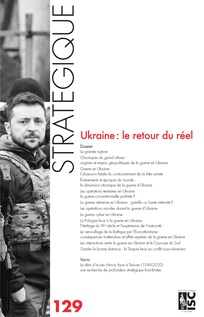
-
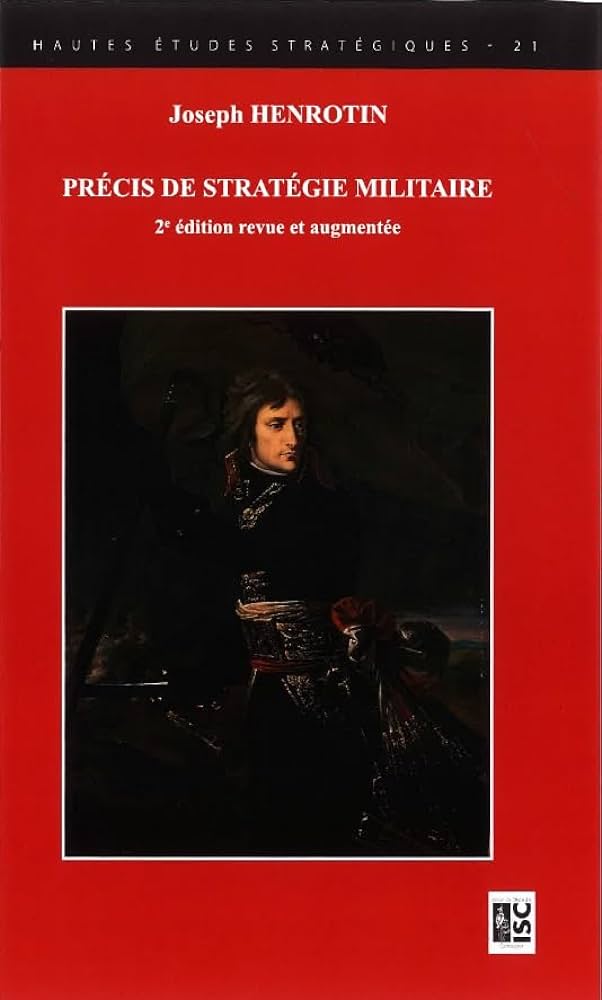
-
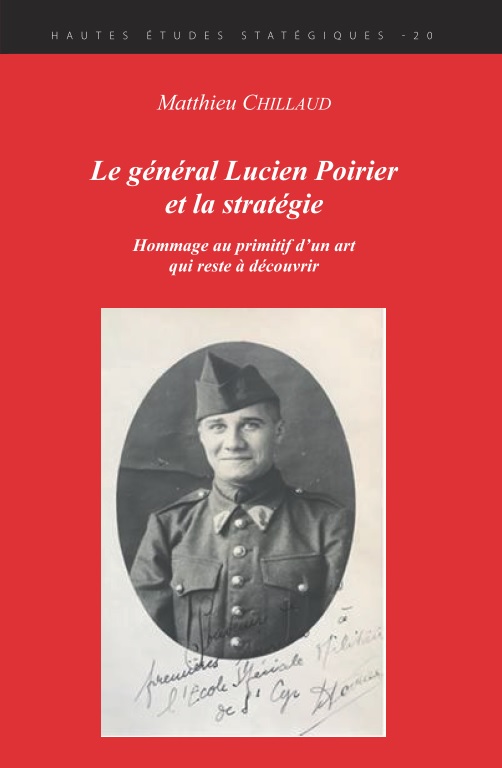
-
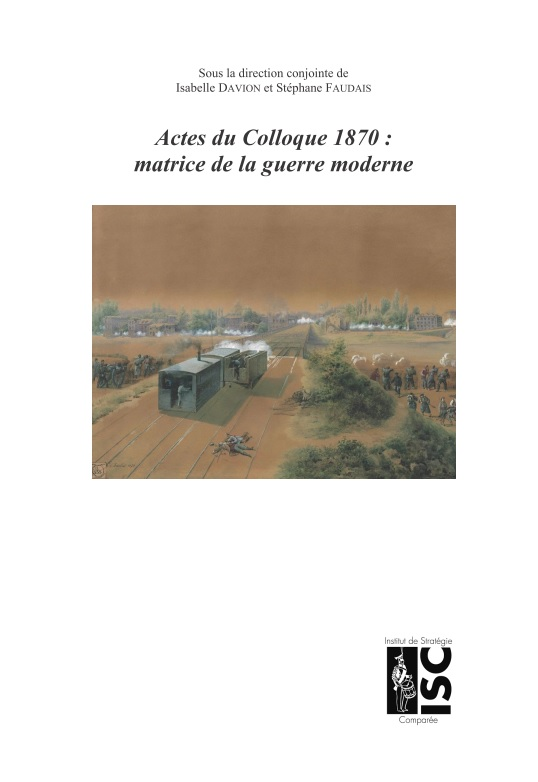
-
